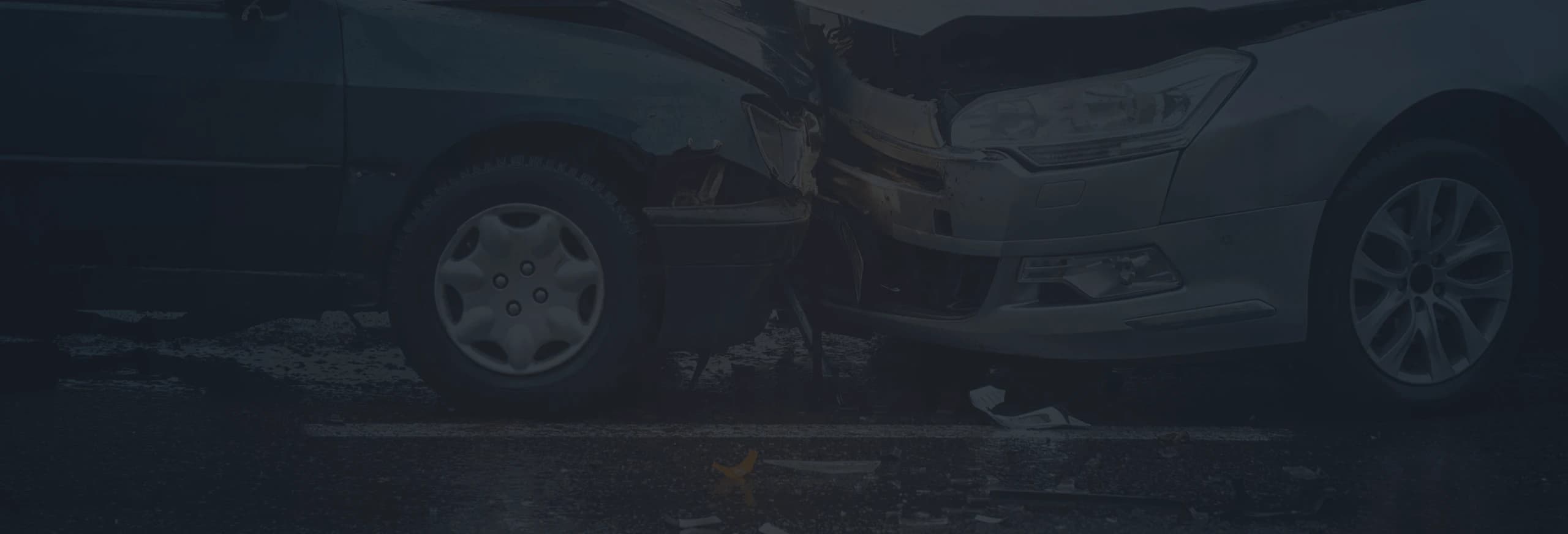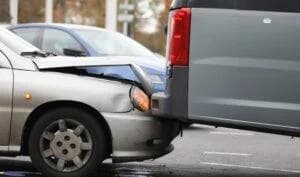
Rideshare Accident Lawyer in Phoenix

Ridesharing services have become part of everyday life in Phoenix, providing convenient ways to travel for work, social events, and errands at the tap of a button. Despite this convenience, accidents can happen. When a rideshare collision occurs, you might face complex insurance arrangements, mounting medical bills, and a driver’s uncertain coverage. If you’ve been in a Phoenix rideshare crash, obtaining legal support can help you navigate these challenges and focus on your well-being.
Below, you’ll discover how rideshare collisions commonly happen, how insurance and liability operate in these cases, and the ways an attorney can guide your pursuit of compensation. Remember that this information is general; for insights aligned with your specific circumstances, consider reaching out to an attorney who frequently handles rideshare accident claims in Phoenix.
The Rising Need for Rideshare Representation
Services like Uber, Lyft, or similar platforms have transformed local transportation, connecting drivers and passengers in real time. However, the unique structure of these companies can complicate matters when collisions occur:
- App Status Affects Coverage
- If the driver was waiting for a request or actively transporting a fare, the rideshare company’s policy might apply
- When a driver is offline or using the car for personal errands, their personal auto insurance typically covers accidents
- Multiple Parties
- Disputes may arise between the driver’s personal insurance, the rideshare company’s insurer, and potentially other motorists or pedestrians
- Sorting out coverage responsibilities can involve a significant amount of back-and-forth negotiation
- Uncertain Liability
- Fault isn’t always clear. Another driver might be primarily at fault, or the rideshare driver could share blame if they were distracted by the app
- Reviewing trip logs, dash cams, or eyewitness accounts becomes essential
The Governors Highway Safety Association (GHSA) consistently notes that evolving technology and travel trends add new layers to traffic safety. Rideshare collisions demonstrate this shift; securing adequate compensation requires understanding both auto insurance norms and the additional coverage that these platforms may offer.
For a free legal consultation with a Personal Injury lawyer serving Phoenix, call (844) 343-9609
Frequent Causes of Rideshare Collisions
Collisions involving rideshare vehicles often parallel standard car wrecks. However, certain factors might be more prominent:
- Distraction With the App
- Drivers toggling the rideshare app for new requests, route changes, or passenger details
- Quick glances away from the road hamper reaction times
- Driver Fatigue
- Some operators log lengthy shifts or juggle multiple jobs, risking slow reflexes
- Drowsy drivers may drift between lanes or fail to respond to sudden stops
- Limited Knowledge of Local Roads
- Rideshare drivers might be new to Phoenix and rely excessively on GPS
- Hesitation or abrupt lane changes can catch other motorists off guard
- Aggressive Maneuvers
- Speeding to complete extra fares or meet surge demands
- Tailgating or weaving through traffic to pick up or drop off passengers faster
- Other Motorists’ Negligence
- Not all collisions are the rideshare driver’s fault. A separate driver might ignore signals or speed, ramming into the rideshare vehicle
- It’s possible that multiple drivers contributed to the crash
Regardless of who is at fault, injuries can be serious, from head trauma to broken bones, calling for extensive care. By investigating thoroughly, you can identify each potentially liable party, ensuring no angle is overlooked in your claim.
Personal Injury Lawyer Near Me (844) 343-9609
Typical Rideshare Accident Injuries and Their Consequences
Victims of rideshare accidents may be passengers, drivers of other cars, motorcyclists, bicyclists, or pedestrians. Injuries differ based on speeds and how collisions occur, but frequently involve:
- Soft Tissue Damage
- Strained muscles, ligament tears, or whiplash from sudden braking
- Physical therapy helps restore range of motion and reduce long-term discomfort
- Head and Brain Trauma
- Concussions or more intense traumatic brain injuries if someone’s head strikes windows or seatbacks
- Ongoing cognitive or mood disorders might emerge, requiring specialized treatment
- Spinal Cord Injuries
- Herniated discs, pinched nerves, or paralysis in severe circumstances
- Advanced surgeries or rehabilitative programs can be life-altering and costly
- Fractured Bones
- Collisions throw occupants against car frames, dashboards, or each other
- Multiple surgeries or weeks in a cast often disrupt work and daily routines
- Psychological Distress
- Anxiety around traveling, flashbacks, or post-traumatic stress
- Professional counseling or therapy can aid emotional recovery
Victims and families may also confront financial strain, from replacing damaged property to covering mounting hospital invoices. Seeking legal counsel helps ensure that these economic and non-economic losses are brought forward in insurance claims or lawsuits.
Click to contact our personal injury lawyers today
Determining Insurance Coverage and Liability
In most collisions, you’d file with the at-fault driver’s auto insurance. Yet with rideshare incidents, coverage hinges on the driver’s status in the rideshare app:
- App Off
- The rideshare company typically disavows liability
- The driver’s personal insurance policy handles your claim
- Waiting for a Request
- Limited coverage from the rideshare platform may apply, bridging the gap if the driver’s policy is insufficient
- You may file claims with both the personal insurer and the rideshare’s insurer
- En Route to Pick Up or Transporting a Passenger
- More comprehensive liability coverage often covers injuries if the driver is actively serving a request
- This coverage can extend to other motorists or pedestrians impacted by the rideshare driver’s mistake
When multiple vehicles are involved, or blame is disputed, clarifying which insurer is primarily accountable can become a challenge. Investigations, such as reviewing app timestamps, dash camera footage, and phone records, help confirm the driver’s role. An attorney arranges these details, ensuring no critical coverage path goes overlooked.
Complete a Free Case Evaluation form now
Potential Compensation for Rideshare Accident Victims
If you were hurt due to a driver’s negligence, you generally have the right to seek compensation that acknowledges every aspect of your loss. Damages often include:
- Medical Bills
- Ambulance rides, surgeries, hospital stays, physical therapy, and follow-up specialists
- Prescriptions, assistive devices, or mental health counseling
- Lost Wages and Reduced Earning Capacity
- Replacing paychecks while you recover
- Addressing job retraining or lowered productivity if injuries hamper your regular work
- Property Damage
- Vehicle repairs or total replacement if you owned or rented the car in the incident
- Electronic devices or personal belongings harmed
- Pain and Suffering
- Physical agony, psychological scars, or diminished quality of life
- Anxiety about traveling again or fear of recurring collisions
- Long-Term Care
- Projections for ongoing surgeries, therapy sessions, or home modifications
- Possible caretaker costs if your mobility remains compromised
Combining these categories forms a fuller view of your current and future needs. By collecting consistent documentation—from medical charts to wage statements—you help shape a more accurate demand for fair compensation.
Engaging a Rideshare Accident Lawyer in Phoenix
Handling a rideshare case by yourself may be time-consuming, particularly if multiple insurers or complicated coverage rules apply. A lawyer focusing on rideshare collisions can:
- Investigate the Accident Thoroughly
- Obtaining app data (to confirm the driver’s active status), eyewitness accounts, and official police reports
- Consulting accident reconstruction experts if speeds or angles require deeper scrutiny
- Establish Liability
- Pinpointing whether the rideshare driver, another motorist, or a combination of both shared fault
- Ensuring coverage from the relevant insurance policy if the driver was “on the clock”
- Assess Full Damages
- Connecting with medical professionals to detail likely long-term treatments
- Highlighting intangible harms—pain, anxiety, or scarring—for a comprehensive claim
- Negotiate With Adjusters
- Presenting a cohesive argument and resisting minimal offers that ignore real costs
- Carefully managing all communications to reduce potential contradictions or delays
- Bring Suit When Necessary
- Filing a lawsuit if insurers refuse a suitable resolution
- Preparing your case for trial, presenting thorough evidence and testimonies
By letting an attorney handle these tasks, you concentrate on recovering physically and emotionally, trusting that your claim receives the attention it warrants.
Four Steps to Take After a Rideshare Collision
- Contact the Authorities
- Ensure police documentation, which might validate early impressions of fault
- Seek paramedic evaluation if you experience any pain or dizziness
- Gather Evidence
- Capture photos of all vehicle damages, license plates, intersection angles, and road conditions
- Request driver and witness contact information
- Notify Your Insurance
- Alert your provider promptly, but consider limiting statements until you obtain legal counsel
- Confirm if your policy’s uninsured/underinsured motorist coverage might come into play
- Seek Legal Guidance
- Early consultation clarifies how coverage from Lyft, Uber, or other platforms applies
- A lawyer can direct you on next steps for claims submission or lawsuit filing
These actions help preserve key information and maintain your ability to argue effectively for compensation.
Three Frequently Asked Questions
If the rideshare driver denies being active on the app, do I still have recourse?
Yes. Lawyers often request app login data or trip records to verify activity. If evidence shows the driver was actively seeking or transporting passengers, the rideshare company’s policy may apply. If not, you can proceed through the driver’s personal auto insurance or additional coverage if other vehicles were at fault.
Should I settle quickly with the rideshare insurer?
Exercise caution. Early settlement offers might overlook certain medical procedures or fail to account for ongoing therapy or lost wages. Consulting an attorney ensures all existing and potential damages are considered before you finalize any agreement.
Can I claim damages even if I partially contributed to the crash?
Yes. Arizona’s comparative fault principles allow partial recovery. Any damages awarded may decrease in proportion to your share of blame. Skilled counsel helps minimize unjust fault assignments or inflated claims that you acted negligently.
Navigating a rideshare collision in Phoenix can feel overwhelming—sorting out driver coverage, medical treatments, and missed income. However, you need not face these complexities alone. A rideshare accident lawyer works to confirm the at-fault party, interpret app records, and safeguard your interests through each stage of your claim. By taking decisive action and relying on legal support, you reinforce your pursuit of rightful compensation, allowing you to focus on healing and restoring a sense of normalcy.
For a free consultation, call (844) 343-9609
Get an agent on the line in seconds
Responsive
Legal Assistance
Our personal injury attorneys advocate for the funds necessary to cover bills, secure medical treatment, recoup lost wages, and provide compensation for your pain and suffering.
Are you facing unfair treatment from the insurance company?
Do you know the value of your case?
Is the insurance company asserting that the accident is your responsibility?

We'll get back to you ASAP.
Get Your Free Consultation
You Pay Nothing Unless We Recover Compensation For You
